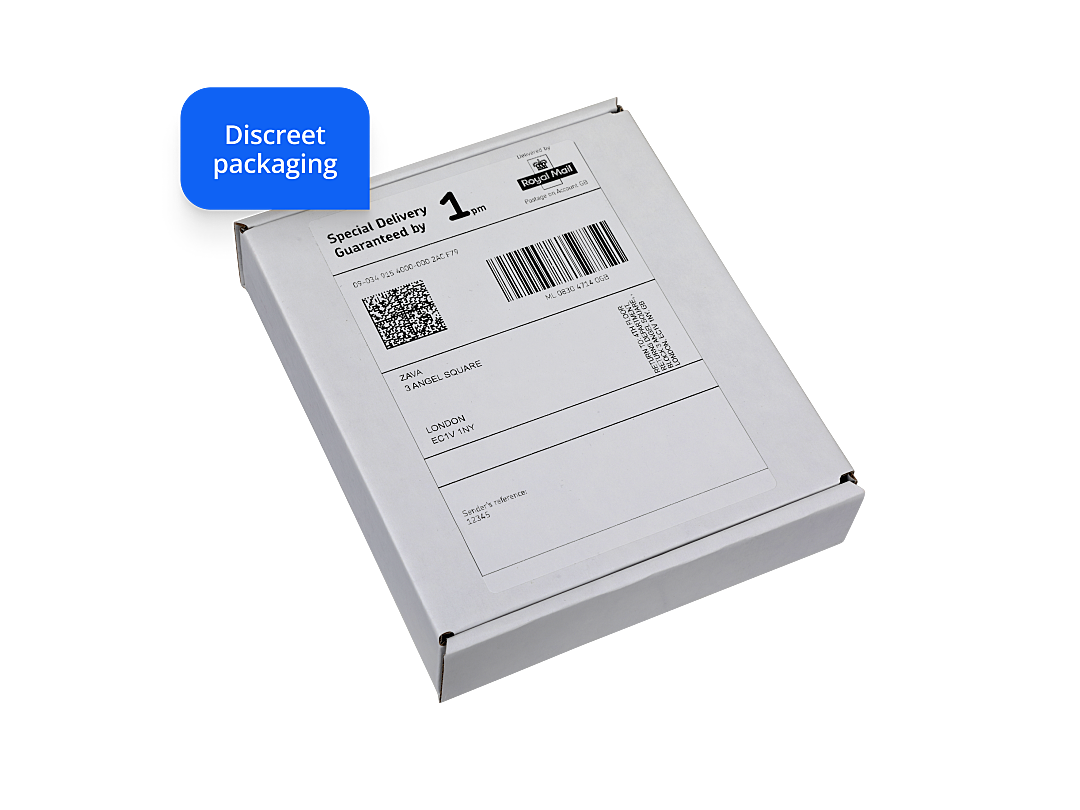Ozempic for weight loss: can you lose weight on Ozempic?




Out of stock. Prices from £0.00
Simply fill in a brief consultation questionnaire and one of our doctors will review your request today.
Start your journey with Wegovy
-
Ozempic is a prescription-only injection treatment for type 2 diabetes. The active ingredient in Ozempic is semaglutide. Ozempic can also be prescribed for weight loss off-licence – this is when a Doctor prescribes a treatment for something it wasn't originally intended to do.
Prices




About Ozempic
-
-
An Ozempic pen is a self-injectable device. It’s prefilled with medication and can be used to inject multiple doses of Ozempic. Ozempic pens are a prescription-only treatment for type 2 diabetes.
Ozempic is not a medication licensed for losing weight in people without diabetes, but it is used by diabetes patients. In the UK, there are medications that have been specifically developed for weight loss, like Wegovy, which contains the same active ingredient as Ozempic (semaglutide). Anyone who might benefit from medications for losing weight may be better off considering these alternatives.
What is Ozempic used for?
Ozempic for diabetes
For diabetes, Ozempic stops your blood sugar from spiking. The semaglutide in Ozempic works the same way as the natural hormones your body releases after you’ve eaten, to control your blood sugar levels.
Ozempic for weight loss
For weight loss, the semaglutide in Ozempic can also make you feel fuller from less food. It slows down how fast food travels through your body, making you feel fuller for longer. As you're less hungry, it’s easier to stick to a diet without overeating, helping you lose weight.
Since Ozempic is licensed for diabetes treatment and can only be prescribed off-licence for weight loss in people without diabetes, a better choice might be Wegovy. Wegovy has the same active ingredient in Ozempic (semaglutide), and is licensed for weight loss.
-
-
Ozempic is only licensed in the UK for managing weight for people who have type 2 diabetes. This means that unless you have type 2 diabetes, it can only be prescribed off-licence for weight loss in the UK. If you want to lose weight but don’t have type 2 diabetes, there are other weight loss treatment options available, like Wegovy, Saxenda, Orlistat or Xenical.
Where can you buy Ozempic online in the UK?
If your doctor agrees to give you a prescription for Ozempic, either on- or off-licence, you can get it filled at most pharmacies. Some online services may also let you request Ozempic online.
Prices for Ozempic will be different depending on how it’s prescribed to you. It’s available on the NHS for people with type 2 diabetes, so it can cost as little as the standard NHS prescription cost, or it can be free if you don’t pay for your prescriptions. But, if it’s offered as an off-licence private prescription, you’ll need to pay full price.
Can you buy Ozempic over-the-counter?
No, Ozempic is a prescription-only medication. This means that it needs to be prescribed by a doctor before you can get it from a pharmacy. Over-the-counter medication can be bought from a pharmacy without seeing a doctor first.
Ozempic is prescription-only because a doctor needs to check if treatment will be safe and effective for you.
What is the generic form for Ozempic for weight loss?
There is currently no generic Ozempic available. Generic medications cost less than branded ones like Ozempic, but they’re only available once a patent for a branded medication has run out. The earliest an Ozempic generic will be available in the UK is probably December 5th 2031.
Even when a generic version of Ozempic becomes available, it may still only be licensed for treating diabetes and not for weight loss.
-
-
The semaglutide in Ozempic can support weight loss by making you feel fuller for longer after you eat. This reduces your appetite and makes it easier to stick to your diet and avoid overeating or snacking as often. However, since Wegovy also contains semaglutide, has the same effect on appetite and is licensed for weight loss, it can be a better weight loss treatment option.
How quickly does Ozempic work for weight loss?
- You should start experiencing the effect of feeling fuller for longer after meals, after your first 2 to 3 doses (within 2 to 3 weeks of treatment).
- Different people react differently to Ozempic, but you should notice a difference in your weight after 6 to 8 weeks of treatment if Ozempic works for you.
Although you should start feeling fuller within a number of weeks, it can still take some time to notice a significant difference in your weight. A major study showing weight loss on Ozempic lasted 68 weeks, and reported on average, participants lost about 15% of their starting weight.
Whether you are using Ozempic for weight loss or to treat type 2 diabetes, if you don’t notice any difference after 6 or 8 weeks of treatment, you should speak to your doctor to discuss whether to continue treatment or consider alternative options.
-
-

“Ozempic can be safe for people without diabetes, but it is only licensed for people with diabetes in the UK. It can be prescribed off-label for weight loss if a doctor approves it. Wegovy, on the other hand, is a medication with the same active ingredient for treating weight loss in people with or without diabetes. We don’t offer Ozempic prescriptions through ZAVA.” – Dr Babak Ashrafi, Clinical Lead for Service Expansion.
-
-
The evidence for Ozempic shows that it can reduce fasting blood sugar levels by around 22% and it can reduce the blood sugar spike people experience after eating by 36%. This study was based on patients with type 2 diabetes taking 1mg Ozempic dose for 12 weeks.
How much weight can you lose on Ozempic pens?
Studies have shown that Ozempic can be an effective treatment for weight loss.
A major study showing weight loss on Ozempic was done for 68 weeks, and reported on average, participants lost about 15% of their starting weight. At the very least, participants had about 5% weight loss and some others even lost more than 20% of their starting body weight.
In another 30-week study of Ozempic’s active ingredient semaglutide, at the maintenance dose for Ozempic (1 mg):
What are the Ozempic reviews like?
Online patient reviews can help show how other people have experienced Ozempic treatment. Ozempic is rated:
-
-
You should take your Ozempic once a week on the same day of the week if possible. You can use it any time of day, no matter when you’ve eaten.
Always use Ozempic as your doctor has advised you to and read the information leaflet that comes with your medication. For more in-depth advice on using your Ozempic, see this patient information leaflet.
What happens when you start taking Ozempic?
Some people notice an effect right away, for others it may take a few doses before they see a reduction in their appetite. You should also notice a reduction in your blood sugar after the first week, if you’re diabetic. It can take up to 8 weeks to see the full effect of Ozempic.
You may also notice some mild side effects when you first start taking Ozempic, as well as when you increase your dose. This can include stomach-related effects like nausea, diarrhoea, vomiting or constipation. These usually go away as your body adjusts to Ozempic.
What happens if you take too much Ozempic?
If you realise you’ve taken too much of your Ozempic, talk to a doctor as soon as possible. You might get side effects like feeling sick. You may also be at risk of rare and more serious side effects. Always take the dose you’ve been prescribed and don’t change your dose without discussing it with a doctor first.
How long can you take Ozempic for weight loss?
Ozempic is safe to use as a long-term treatment for type 2 diabetes. It has not been licensed for weight loss alone so there is no official advice about how long to use it for this purpose. Your doctor will let you know when you’re ready to come off your medication. Don’t stop using your medication without talking to your doctor, unless you have serious side effects. If you’re not sure whether you still need Ozempic, your doctor will be able to advise you.
Can you take Ozempic permanently?
Ozempic can be used as a long-term treatment for type 2 diabetes. It doesn’t have to be permanent though. If lifestyle changes are able to bring your weight and blood sugar levels under control, Ozempic treatment can be discontinued.
What foods should be avoided in the Ozempic diet?
No foods will react badly with Ozempic, so nothing is off the table. But, an unhealthy diet can make some of the side effects of Ozempic more likely. Also, a healthy diet is an important part of maintaining a healthy weight and blood sugar levels. So, we recommend avoiding:
- high sugar foods, even ones that are sold as healthy, like breakfast bars
- sugary drinks
- high fat foods as well
- foods that are calorie-dense, like big portions of carbohydrates and red meats
Is it safe to mix Ozempic and alcohol?
Alcohol doesn’t react with Ozempic, but it can lower your blood sugar levels so watch out for dizziness if you do drink on your treatment.
Excessive drinking can increase your risk of complications from diabetes so it’s a good idea to limit drinking anyway. Also, alcohol has a lot of calories and often leads to overeating so there are a lot of benefits to cutting down on alcohol when taking treatments like Ozempic.
-
-
There are 4 doses of Ozempic used for treating diabetes. You start on the lowest dose and then can move up to higher doses during the course of your treatment.
How many doses are in an Ozempic pen?
Each pen is only meant to deliver 4 doses. As your dosage increases from 0.25mg, to 0.5mg, and to 1mg, the amount of medication in each pen also goes up. But, the number of doses in each pen stays the same (4).
-
-
Ozempic vs other medications
There are some other medications that are also used for weight loss and/or treatment of type 2 diabetes.
Other weight loss injections:
- Wegovy is another semaglutide injection medication which is approved for treating weight loss in people who don’t have diabetes as well.
- Mounjaro is another weight loss injection with a different active ingredient, tirzepatide. It works in a similar way as Ozempic to reduce your appetite.
- Saxenda is another similar medication for weight loss that contains the active ingredient called liraglutide and works by suppressing appetite. Saxenda is currently long-term out of stock.
Other diabetes medications:
- Rybelsus is a tablet form of semaglutide which works in a similar way to the injections, but like Ozempic it’s prescribed to treat people with type 2 diabetes.
- Metformin tablets are another kind of type 2 diabetes treatment that lowers your blood sugar levels by reducing the amount of glucose produced by the liver and increasing your body’s insulin sensitivity
- Trulicity contains the active ingredient dulaglutide, and works by suppressing appetite and increasing your body’s insulin production to reduce high blood sugar levels
- Insulin is the hormone your body makes to manage blood sugar levels itself, but it’s also available as a diabetic medication as well.
If you’re looking to lose weight with medications similar to Ozempic and you don’t have type 2 diabetes, you could consider Wegovy or Mounjaro.
Other weight loss medications that work slightly differently to Ozempic include branded Xenical and generic Orlistat.
-
-
Since Saxenda is licensed for weight loss treatment, it is the better choice for people who only need weight loss treatment. Ozempic is licensed for type 2 diabetes treatment so it may be the better choice if you need help managing your blood sugar levels.
People on Saxenda have a:
- 56% chance of losing at least 5% weight
- 26% chance of losing at least 10% weight
- 12% chance of losing at least 15% weight
- 6% chance of losing at least 20% weight
Since Saxenda is currently long-term out of stock, a better choice might be Wegovy, since it has the same active ingredient as Ozempic but is designed for weight loss and unlike Saxenda, stock is available.
-
-
Yes. Although they have the same active ingredient, they are licensed for different conditions and there are different doses for each.
Ozempic is licensed for treating type 2 diabetes and is available in 0.25mg, 0.5mg and 1mg doses. On the other hand, Wegovy is licensed for weight loss and is available in 0.25mg, 0.5mg, 1mg, 1.7mg and 2.4mg doses.
Other non-medication alternatives to Ozempic
For some people, managing weight loss and controlling blood sugar can be done without medication. Instead, it can be done through:
- maintaining a healthy diet
- regular exercise
- weight loss programmes
Even if you are using medication, lifestyle changes like the ones listed above can help improve the effectiveness of your weight loss and type 2 diabetes treatment.
-
-
Ozempic can cause side effects like any medication. Most of these side effects are mild but there is a risk of some serious side effects too.
Signs of serious Ozempic side effects and what to do
Serious side effects of Ozempic can include:
- complications of diabetic eye disease
- inflamed pancreas
- severe allergic reaction
See a doctor straight away if you get:
- eye problems or changes to your sight
- severe pain in your stomach and back that doesn’t go away
- breathing problems, swelling in your face, lips, tongue or throat and difficulty swallowing, or a fast heartbeat
Other Ozempic side effects
Very common side effects that affect more than 10% of users:
- feeling sick
- diarrhoea
Common side effects that affect up to 10% of users:
- throwing up
- low blood sugar
- gallstones
- dizziness
- headaches
Uncommon side effects that affect up to 1% of users:
- change in how food tastes
- a fast pulse
- reactions where you use your injection, like bruises or irritation
- allergic reactions, like hives or a rash
- delayed gastric emptying
Does Ozempic always have side effects?
Some side effects like bloating go away after a few weeks, but some will stay as long as you’re taking Ozempic. If you stop Ozempic, these side effects will usually stop once Ozempic leaves your system, which takes about 5 weeks.
What drugs can’t you take with Ozempic pens?
It’s important to tell your doctor if you’re using warfarin or insulin before you start using Ozempic. You should also tell your prescribing doctor about any other prescriptions or herbal treatments you’re using.
Ozempic is not known to interact with cannabis, but if you’re using weed or any other drugs recreationally, your doctor will need to know to make sure your treatment is safe.
-
-
Ozempic pens can be an effective treatment for type 2 diabetes. They can also support weight loss alongside diet and exercise. But, since Ozempic is not licensed for weight loss treatment in people without diabetes, Wegovy may be a better option. Wegovy is licensed for weight loss in people without diabetes.
-
Frequently asked questions
Does Ozempic make you tired?
Yes, Ozempic can make you tired. Up to 10% of people who use Ozempic with other diabetes medications get low blood sugar, which can also cause tiredness. A doctor can help you manage side effects of low blood sugar.
Is Ozempic expensive?
Ozempic is a branded medication, which means only the manufacturer that holds the patent can make it. This means they can set the price for the treatment as well. Once a patent expires, generic versions of Ozempic can be made and sold cheaper. This won’t happen until December 2031.
Ozempic can be less expensive if it’s prescribed on the NHS for diabetic treatment, in which case it can be free or else it only costs the standard prescription fee. If it’s obtained as an unlicensed treatment for weight loss then you will have to pay full price.
Will I gain weight after stopping Ozempic?
It is possible to gain back weight after stopping Ozempic. Once you stop Ozempic, your appetite will return to normal. This means you need to keep your diet and exercise routine up or you will be at risk of overeating and gaining back the weight.
What does Ozempic do to your face?
Ozempic doesn’t do anything to your face directly. The so-called ‘Ozempic face’ can be a result of rapid weight loss. As fat is lost from your face, the skin that was previously stretched over this fat becomes loose and can sag. This effect should fade over time as your skin’s natural elasticity returns.
How long has Ozempic been on the market?
Ozempic was launched in the UK on 2nd January 2019 for treating diabetes. It is still not licensed for weight loss in people without diabetes.
Wegovy, which has the same active ingredient, has been available for weight loss in the UK since Sept 2023.
Will Ozempic get rid of belly fat?
Yes, but not more than anywhere else on your body. Your body burns fat evenly across your body as you lose weight. Some people are prone to storing more fat around their bellies than others. As Ozempic helps you lose weight, some of the fat from around your belly will be removed. There is no way of targeting a part of the body for removing fat without surgeries like liposuction.

Dr Babak Ashrafi Clinical Lead for Service Expansion
Accreditations: BSc, MBBS, MRCGP (2008)
Babak studied medicine at King’s College London and graduated in 2003, having also gained a bachelor’s degree in Physiology during his time there. He completed his general practice (GP) training in East London, where he worked for a number of years as a partner at a large inner-city GP practice. He completed the Royal College of GPs membership exam in 2007.
Meet our doctorsLast reviewed: 24 Jul 2024
-
SEMAGLUTIDE - Generic Drug Details (2023) DrugPatentWatch [accessed Oct 23]
-
Package leaflet: Information for the patient. Ozempic® 0.25 mg solution for injection in pre-filled pen (2023) EMC [accessed Oct 23]
-
What foods to avoid while taking Ozempic. NiceRx Health [accessed Oct 23]
-
Once-Weekly Semaglutide in Adults with Overweight or Obesity (2021) PubMed [accessed Oct 23]
-
Liraglutide for weight management: a critical review of the evidence (2016) PubMed [accessed Oct 23]

GMC: 6149061

GMC: 7074021

GMC: 7155722









